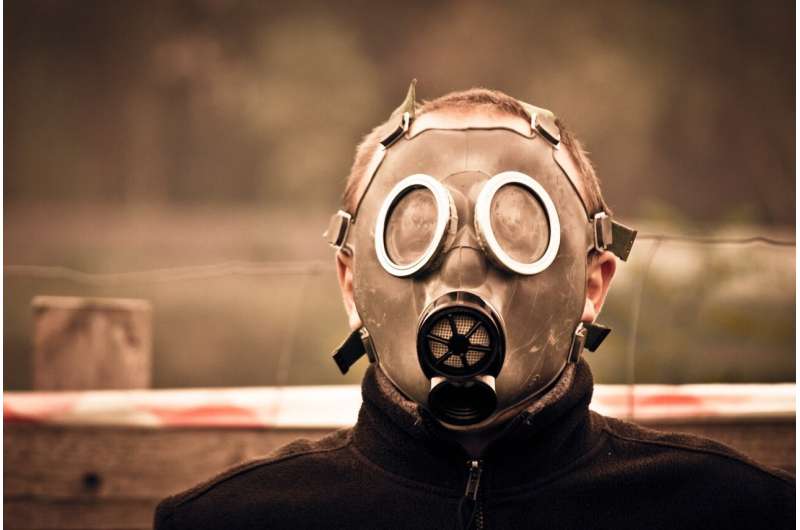This article has been reviewed according to Science X's editorial process and policies. Editors have highlighted the following attributes while ensuring the content's credibility:
fact-checked
peer-reviewed publication
trusted source
proofread
Higher mortality rate for Porton Down veterans involved in chemical weapons research

Military veterans involved in chemical warfare agent research at Porton Down faced a 6% higher mortality rate than similar veterans who were not involved.
The research from the King's Centre for Military Health Research (KCMHR) at King's College London, in partnership with Lancaster University, is published in the International Journal of Epidemiology.
Researchers compared the medical records of 16,721 male UK veterans who participated in the 'Service Volunteer Program' from 1941-1989, comparing them with 16,228 non-Porton Down veterans, placing a particular focus on the most common causes of death and types of cancer.
They found that these military veterans had higher rates of mortality from diseases of the genitourinary systems (for example, kidney disease), as well as deaths attributable to alcohol, but found little evidence of an association between attendance at Porton Down and higher rates of overall cancer incidence.
Porton Down first opened during World War I in response to the use of chemical weapons. Since 1916, over 20,000 service personnel have been exposed to low doses of chemical warfare agents and their antidotes, some of which are known to be carcinogenic. This has raised questions over the long-term impacts on the health of veterans attached to the Program.
While there was only a small increased risk overall, the researchers did find that veterans who took part in the Porton Down Volunteer Program between 1960-64 were at significantly greater risk of dying from a range of causes including cancerous tumors, diseases within the circulatory system, and smoking related deaths.
The researchers suggest that health providers need to be aware of the specific health issues connected to military veterans, and the wider population, who may have been exposed to chemical warfare agents.
Dr. Tom Keegan, one of the study's authors and a Senior Lecturer in Epidemiology from Lancaster Medical School said, "Military personnel were exposed to over four hundred different types of chemicals over the course of the program, so we now want to investigate whether particular chemicals are associated with increased risk of poorer health."
Dr. Gemma Archer, from KCMHR, the study's first author said, "Veterans of the Porton Down Service Volunteer Program were often exposed to small doses of chemical agents designed to be used in war. Our study followed the health of veterans for over fifty years, and we are thankful that it indicates that the large majority of veterans were unlikely to have come to harm."
"A small number of veterans did appear to have higher rates of death and a variety of other illnesses, and it is something that healthcare professionals need to be mindful of when treating victims of chemical exposure."
Professor Nicola Fear, co-director of KCMHR and the study's senior author said, "There has, for some time, been a question mark hanging over the volunteers who contributed to the research of Porton Down. While it is reassuring that our study found no evidence of increased risk of cancer in veterans who attended Porton Down, the 6% higher rate of all-cause mortality compared to veterans who didn't attend Porton Down is not something that should be overlooked".
More information: Gemma Archer et al, Mortality and cancer incidence in UK military veterans involved in human experiments at Porton Down: 48-year follow-up, International Journal of Epidemiology (2023). DOI: 10.1093/ije/dyad050




















